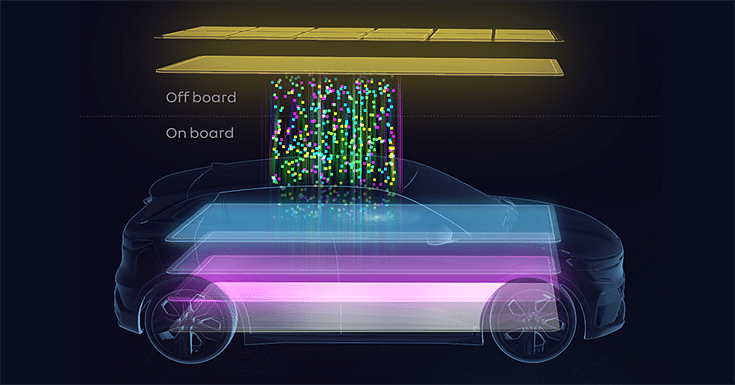Tech Talk: Why cars will become more like smartphones
A replacement for ECUs is the software-defined car, with Renault already working on 'CAR OS'.
One of the latest buzz phrases in the car industry is ‘the software-defined car’. Purists may hate the sound of it and social media is already awash with complaints about buggy car software.
But cars have been relying on specialised computers since the late 1970s, although they’re more commonly referred to as ‘ECUs’ (electronic control units). Essentially, though, that’s what they are: boxes of computer hardware running computer code to make things happen.
Probably the first major use of ECUs in cars was to control engines. It was a big step because they meant the ignition systems and fuelling of an engine could all be brought under the control of an engine management system, making engines more efficient and more powerful.
Soon, ECUs appeared elsewhere, controlling things like ABS, lighting systems, stability control systems and then electronic transmission controls. Today’s cars are awash with them and some have nearly 100 ECUs dotted around, each doing a specific job.
One advantage of using lots of them as cars became more complex was to reduce the amount of costly, heavy wiring harnesses.
Instead of all the wiring needed to connect each individual electrical device on the car, plus all the associated wiring for switching things on and off and connecting sensors, the introduction of the CAN (controller area network) allowed each individual ECU controlling its own group of equipment to be connected by a couple of signal wires. The problem now is that the complexity of cars needs something more sophisticated.
 The Software Defined Vehicle (SDV) refers to the ability to upgrade a car throughout its lifetime, through a centralised architecture, updating it and integrating new applications to enhance its functions, in a manner similar to smartphones.
The Software Defined Vehicle (SDV) refers to the ability to upgrade a car throughout its lifetime, through a centralised architecture, updating it and integrating new applications to enhance its functions, in a manner similar to smartphones.
Shift to software-defined vehicles
That’s what the software-defined car (or vehicle) is about. For example, Renault says it will update a car throughout its lifetime via a centralised architecture in a similar (if more complicated) way to a smartphone.
It’s a subtle transition – from merely using electronic components to operate the features of a car to allowing them to evolve during ownership. In Renault’s case, it will cover preventative maintenance by predicting wear and tear, personalisation of the interior features, battery charge management, infotainment and so on.
The physical change will be substantial. Replacing the 60-80 ECUs Renault says its cars have today, there will be a central computer with more power and flexibility than it needs at the car’s inception, giving it the capacity for future upgrades and the ability to cope with huge amounts of data.
Renault is working with Qualcomm on this, and to develop what it calls the ‘CAR OS’, it’s working with Google too.
This is just one example but the rest of the industry is following a similar path. ZF Friedrichshafen, a major supplier and big innovator, has developed Cubix control software to coordinate and control all the chassis actuators in a car directly, from brakes to steer by wire and suspension systems.
So where is this leading? The ultimate software-defined vehicle is likely to be the autonomous car of the future.
ALSO READ:
Qualcomm targets software-defined vehicles with Snapdragon automotive 5G platform
Hyundai and Kia revamp R&D to accelerate shift to EVs, SDVs and achieve start-up agility
Bosch targets sales of over 80 billion euros by 2029, bets big on software and SDVs
RELATED ARTICLES
BKT, the ‘Off-Road King,’ Chases the Consumer Market
The company has unveiled a broad range of tyres for the Indian two-wheeler and CV markets.
RSB Group Prepares for Hyper-Growth: New Markets, Tech and Mission ₹10,000 Cr
From a small workshop in Jamshedpur to an engineering group with global reach, RSB Transmissions is preparing for its mo...
Beyond Helmets: NeoKavach Wants to Make Rider Airbags India’s Next Safety Habit
As premium motorcycles proliferate and riding culture evolves, an Indo-French venture is betting that wearable airbags, ...






 27 Jun 2023
27 Jun 2023
 7916 Views
7916 Views





 Shahkar Abidi
Shahkar Abidi


 Darshan Nakhwa
Darshan Nakhwa


